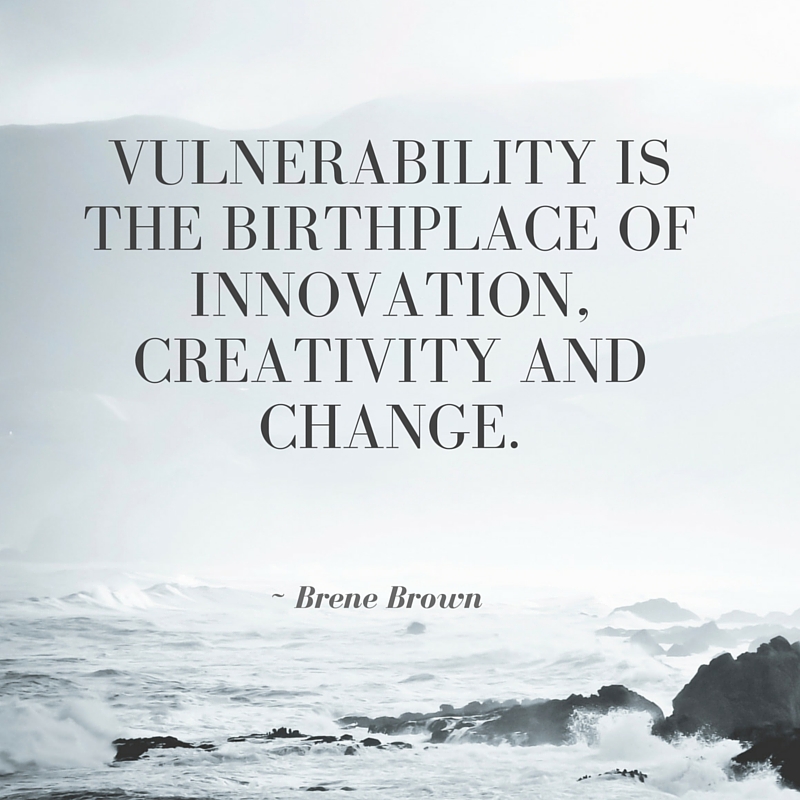The Power of Vulnerability

I’ve been having a lot of conversations about leadership and vulnerability recently.
The word ‘vulnerability’ raises so many objections. Many people who are leading others are terrified that if they show any vulnerability it will make them seem weak.
What is Vulnerability?
Brené Brown defines vulnerability as ‘uncertainty, risk and emotional exposure’.
And leadership is all about uncertainty, risk and emotional exposure.
Leadership and vulnerability have a lot in common!
The Link Between Vulnerability & Leadership
Just like vulnerability, leadership requires us to step up, step forward, constantly stepping out of our comfort zones.
“Vulnerability is not weakness, but rather our clearest path to courage.” —Brene Brown
Most of us were brought up to believe it’s not okay to admit weakness. However, we can see everywhere the most authentic leaders are the ones we admire. Authenticity requires developing true self-awareness.
This takes courage and can be challenging, and sometimes painful. In developing self-awareness, we have to admit all sorts of things to ourselves. Transformation cannot exist without courage. Courage, in turn, requires vulnerability. That is, an openness to uncertainty, risk and emotional exposure. Much of the literature and research relating to creativity and innovation in organisations shows successful results from cultures where ‘risk taking (within safe boundaries) is encouraged and where there is an acceptance that not all innovation will be successful.’
This type of culture enables ‘psychological safety, such that staff feel confident speaking out about errors, problems and
uncertainties and feel empowered and supported to develop and implement ideas for new and improved ways of delivering services.’ Psychological safety evolves when leaders display vulnerability. Otherwise it will never feel okay for others to make mistakes and admit uncertainties.
When we talk about vulnerability in leadership, the objection is often the fear of having to expose our deepest and darkest fears. However, this is not the expectation.
For example, vulnerability can simply be any and all of the following three:
1. Admit you don’t have all the answers. This encourage others to share their ideas.
2. Share that you have struggled with something in the past and what you did to rectify that struggle. This encourages growth mindset and openness to learning in others.
3. Discuss what is important to you – your values. This will help others to share their values and recognise you all have more in common than it may seem.